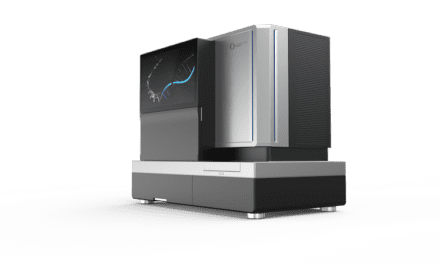Study shows Foresight CLARITY demonstrated 68% pre-operative and 38% post-operative MRD detection rates in stage I lung cancer patients.
Foresight Diagnostics presented clinical performance data for its Foresight CLARITY ultrasensitive circulating tumor DNA assay at the IASLC 2025 World Conference on Lung Cancer, demonstrating improved minimal residual disease detection capabilities in early-stage lung cancer patients.
The presentation, delivered in partnership with University Health Network’s Princess Margaret Cancer Centre, featured analysis of minimal residual disease (MRD) performance in stage I lung cancer patients from the ctDNA-Lung DETECT study. Foresight CLARITY is an ultrasensitive ctDNA assay with a reported detection limit of less than one part per million.
The study results showed pre-operative MRD detection at 68% and post-operative MRD detection at 38%. Clinical sensitivity for relapse detection at the post-surgical landmark reached 55%, with a median lead time of 10 months prior to clinical recurrence.
Post-operative MRD detection demonstrated significant association with worse recurrence-free survival at both the post-operative landmark (HR = 3.14, p = 0.0425) and at the one-year timepoint (HR = 8.20, p = 0.0001).
Addressing Early-Stage Detection Challenges
The results address longstanding challenges in early-stage lung cancer MRD detection, particularly the low-shedding nature of these tumors that has historically limited ctDNA assay effectiveness.
“The field has historically recognized the challenges of using ctDNA-MRD assays in early-stage lung cancer, particularly due to the low-shedding nature of these tumors. However, based on the results of our study, ultrasensitive assays can offer actionable insights and may help us achieve personalized treatment strategies, such as adjuvant therapy escalation in high-risk patients,” says Natasha Leighl, MD, division head of medical oncology and hematology at University Health Network’s Princess Margaret Cancer Centre, in a release.
The clinical performance data suggests potential applications for laboratories seeking to expand MRD testing capabilities in lung cancer patient populations where traditional assays may have limited sensitivity.
Clinical Applications for Laboratory Testing
The ultrasensitive detection capabilities demonstrated in the study may enable new clinical applications for laboratory professionals working with early-stage lung cancer patients.
“Detecting MRD in early-stage lung cancer patients before or after surgery may open new clinical applications not possible with current tools,” says David Kurtz, MD, PhD, chief medical officer and head of research at Foresight Diagnostics, in a release.
The Boulder, Colorado-based company positions itself as a leader in ultrasensitive MRD detection technology. Foresight CLARITY is currently designated for research use only and is not intended for use in diagnostic procedures.
The presentation took place during the MA03 session on “New Advances in Circulating Biomarkers” at the Barcelona conference, which ran from Sept 6-9, 2025.
ID 22339328 © Vasiliy Koval | Dreamstime.com





